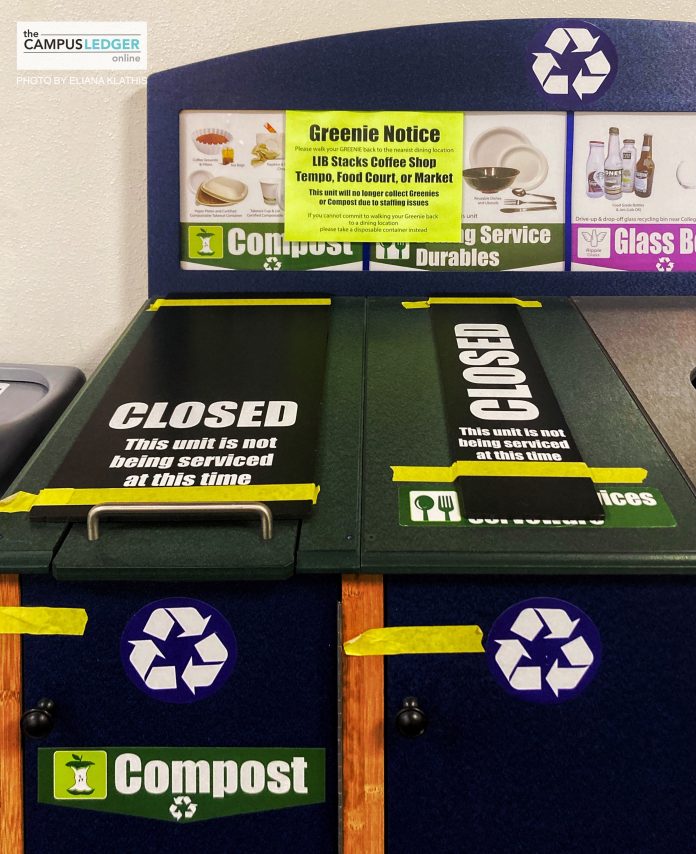
Have you noticed that around campus there are no longer any compost bins? Students used to find the main bins next to the food court and the other composting bins were connected to landfill bins that could be found throughout the school. However, these bins have all been out of use since the beginning of the semester.
Unfortunately, multiple factors contributed to the closing of composting at JCCC, according to Krystal Anton, the Zero Waste Coordinator at JCCC, who has served in this role for 8 years, said.
“I had to shut down the dining room [compost bin] because it was so contaminated, and it took us about an hour or more to go through all of it,” Anton said. “Then we got short staffed and I said ‘somethings gotta give,’ and I gave.”
What is composting and why was JCCC composting in the first place? In short, it is the process in which organic matter such as leaves and food scraps break down into the soil.
Over time, composting turns food waste into a rich-nutrient-dense soil that can be used to improve soil quality and support plant growth, according to Planet Natural. This process can be very beneficial when it comes to dealing with food waste.
The U.S. has a huge problem with food waste. The USDA estimates that 30-40% of the food supply is wasted in the U.S every year. Locally, according to a JCCC Honors Journal article, an estimated 81,204 tons of food are wasted annually at the consumer level in Johnson County.
The food that is thrown out in turn ends up in landfills where it could be turned into healthy, rich compost to grow other food, but it is not.
JCCC in the past and currently is trying to help with environmental issues. The school has been environmentally friendly and has done sustainable practices for many years now, all starting in May 2008 when former JCCC president Terry Calaway signed the ACUPCC (American College & University Presidents’ Climate Commitment).
JCCC has gone on, since then, to find more sustainable solutions to make the campus more environmentally friendly such as switching over to all LED light bulbs in 2015.
Although the food composting around the school that is used by students has been out of use, the campus still composts food waste and paper towels, according to Anton.
“We still compost everything out of the kitchen, so all of the food trimmings and the hot bar at the end of the day,” Anton said. “We still also compost our towels as well in the restrooms.”
Once the compost has been collected by the sustainability interns, it is taken and put into a composting machine at the back of the school by the Horticulture Science Center. The machine is then turned once a week and the compost is mixed in with the soil that the plants are planted in.
Unfortunately, the machine rusted and broke down about two months ago, which is yet another reason composting has been out of use for the semester, Anton said.
Anton estimates that the compost will be up and running again in June of 2023.
Eliana Klathis, features editor





















